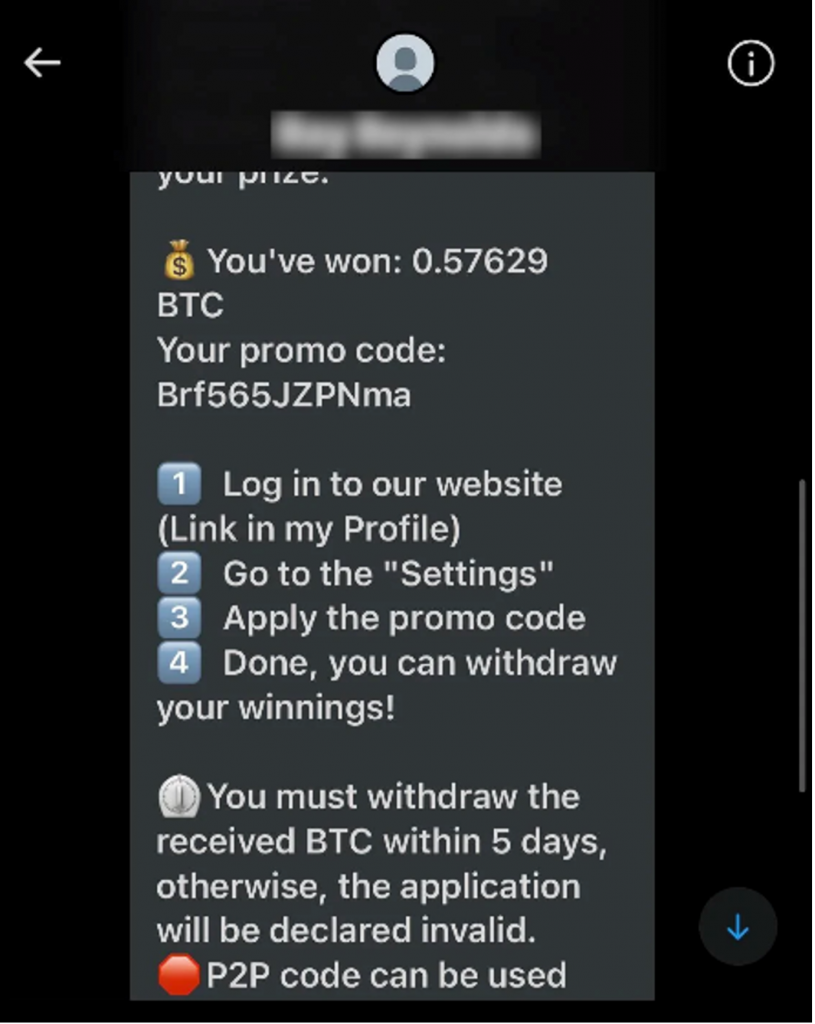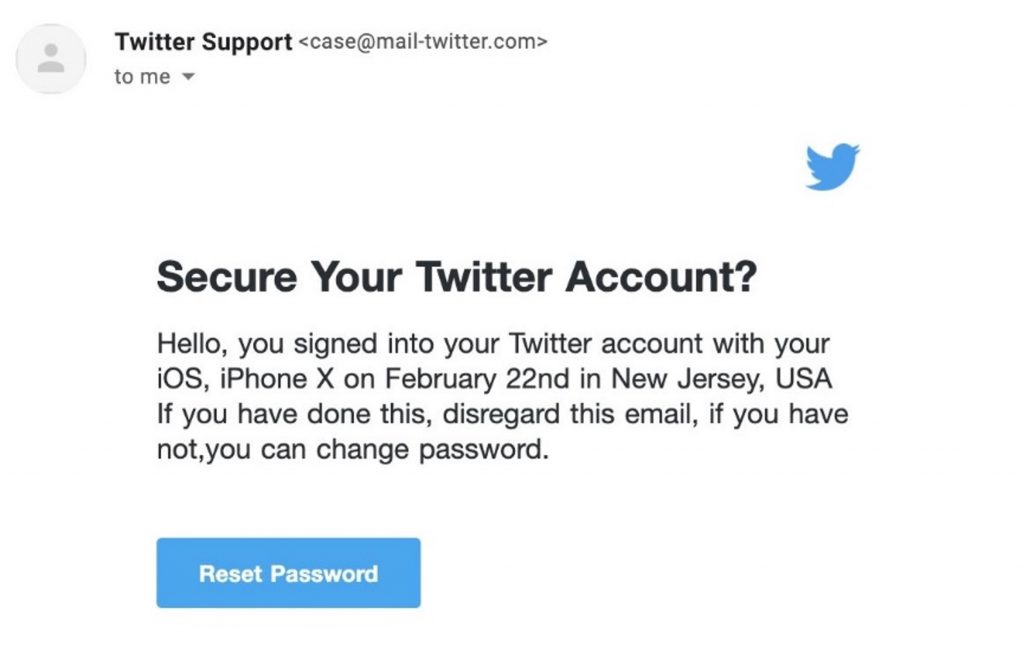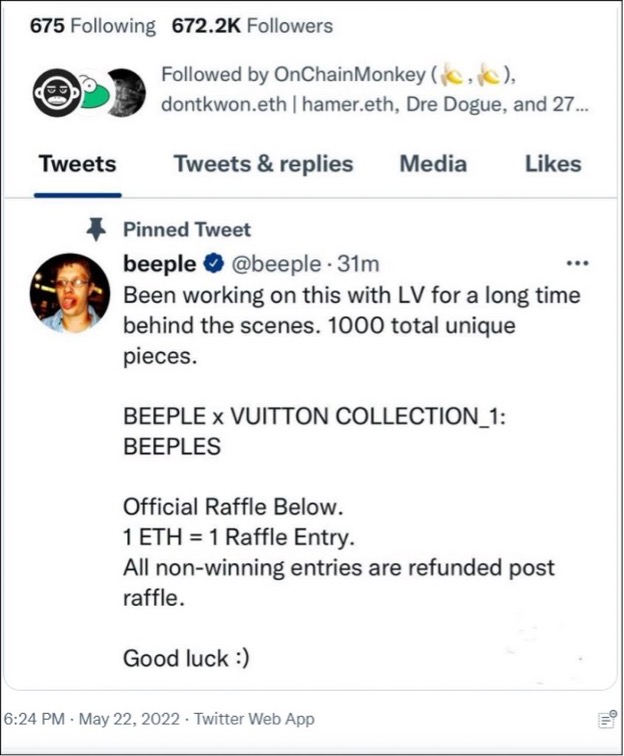Last Updated on March 31, 2023
Twitter scams are everywhere, and they’re really, really concerning. According to the FTC, last year social media was “a gold mine for scammers”, with more than one in four people who reported losing money to fraud saying the scam started on social media.
It’s not only money you could lose to these scams, either. If your Twitter account were to be compromised, you could lose memories, in the form of all the photos, videos, old Tweets, and personal messages linked to your account. You could lose your reputation too, because oftentimes when online accounts are compromised, they’re used to scam the victims’ friends and family.
To help you avoid a social media nightmare, we’ve compiled a list of three of the most common and clever Twitter scams that you need to know about.
STOP! Have You Enabled 2FA?
If you haven’t already, you should enable two-factor authentication (2FA) on your Twitter account for better security. For complete instructions on how to do so, click here.
#1 — Crypto-Related Scams
Such Twitter scams come in many forms, with the one commonality being that they all feature the theme of cryptocurrency in some way.
Scammers may try to steal people’s crypto, or use the allure of crypto as a way of getting people to part with their sensitive data, like in the example below.

This message claims the receiver has won just over $12,000 in Bitcoin and needs to log in to a website to claim it. Websites such as this have been known to ask potential victims for all kinds of personal data, including their usernames and passwords, full names, email addresses, physical addresses, crypto wallet credentials, and more.
To keep your personal data and crypto safe, if you receive any unsolicited messages mentioning cryptocurrency in any way, steer well clear.
#2 — Phishing Scams
The goal of Twitter phishing scams is to steal your Twitter username and password. If a hacker were to gain access to your Twitter account, they could post inappropriate Tweets under your name, message your friends and family while posing as you, read your personal messages, and delete your pictures, videos, or even your Twitter account itself.

Twitter phishing emails can take many forms, but they will often say there is a problem with your account and you need to urgently resolve it by clicking an included link. It’s the implied sense of urgency that almost always gives away a phishing scam. That, and the unofficial email address they’re often sent from (like in the example above). Emails from Twitter will only ever be sent from email addresses ending in @twitter.com or @e.twitter.com.
If you’re the owner of a verified Twitter account (one with a blue badge icon), you should check out this article because there are phishing scams specifically targeting you.
#3 — Celebrity Account Hacked Scams
The social media accounts of celebrities and public figures are prime targets for hackers. Those who’ve had their online accounts compromised include Joe Biden, Bill Gates, Kanye West, Elon Musk, Kim Kardashian, and many, many more.
What scammers love to do once they’ve gained control over a well-known individual or organization’s Twitter account, is to host fake crypto and NFT giveaways and raffles.
Back in May, popular NFT artist Beeple’s Twitter was hacked and the hackers ran a fake NFT raffle, requiring anyone wanting to participate to send them 1 ETH — cryptocurrency worth approximately $1,400. Although the hackers claimed all the money would be returned after the raffle had finished, we all know that was never going to be true.

Twitter Data Breach — 5.4 Million Users Affected
On July 20th, the data of over 5.4 million Twitter users was put up for sale on an underground internet forum for $30,000. The data set contains victims’ email addresses and phone numbers, despite whether they had configured their privacy settings to hide this information.
Although Twitter has since patched the vulnerability that led to this data breach, if you have a Twitter account you should be extra suspicious of phishing scams because hackers and scammers will use leaked data to conduct wide-scale scam campaigns.
Click here to learn how to enable two-factor authentication (2FA) on your Twitter account — essential for protecting against hackers. For complete instructions on how to do so, click here.
Twitter Scams — How to Stay Safe
- Be extra wary of messages received from strangers, and immediately delete anything referencing cryptocurrency or NFTs.
- Double-check that any emails sent to you by Twitter are genuine by confirming the email address ends in either @twitter.com or @e.twitter.com.
- Use Trend Micro ScamCheck to protect you from scam websites, phishing links, and more — for FREE!
If you come across something dangerous online, Trend Micro ScamCheck — our 100% FREE browser extension and mobile app — will alert you in real time so you’ll know to stay well clear! Click the button below to learn more.
If you’ve found this article helpful, please do SHARE it with friends and family to help keep the online community secure and protected.
